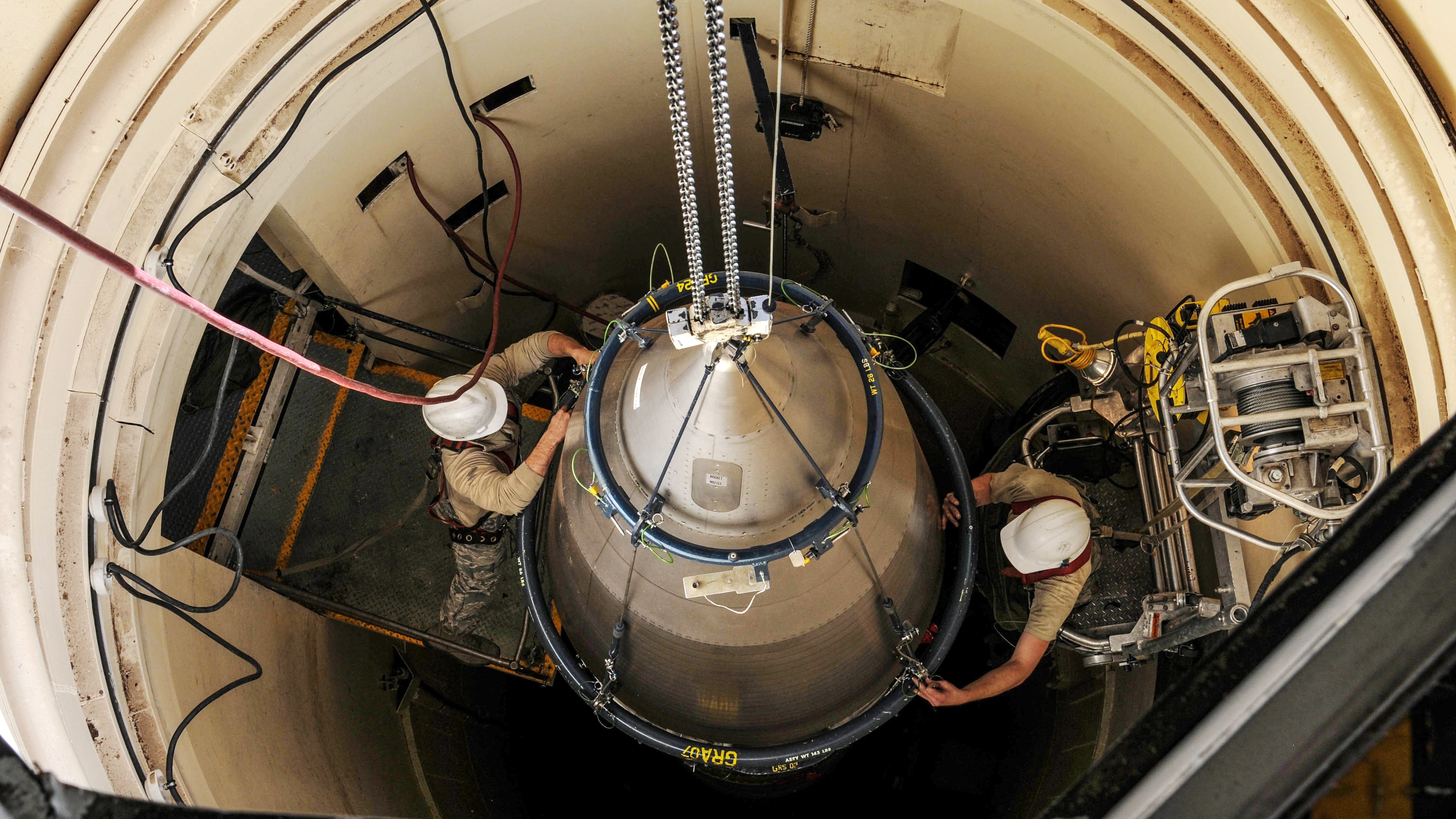Boeing sent seismic shock waves through the defense acquisition system this past July when it announced it would not compete for the U.S. Air Force’s Ground Based Strategic Deterrent, or GBSD, program, a major defense effort worth at least $63 billion. Boeing stated that the program’s structure did not provide a level playing field on which Boeing could compete for the award. Specifically, Boeing complained that the 2018 acquisition of Orbital ATK by Northrop Grumman — the other prime bidding for the program — placed it at a competitive disadvantage because of Northrop’s control of the production of solid-fueled rocket motors, or SRM, an essential component of the system.
Boeing’s complaints are hard to swallow. They certainly merit consideration and evaluation by Defense Department and Air Force acquisition authorities, but such a review must not be allowed to delay the development and deployment of this vital system.
The GBSD is the replacement for the Minuteman III intercontinental ballistic missile fleet that has provided a key leg of the nation’s strategic deterrent for 45 years. Successive nuclear posture reviews in multiple administrations have called for retaining the ICBM capability alongside the other two legs (ballistic missile submarines and bombers) of the nuclear triad.
Moving forward on GBSD has been the Air Force’s priority for several years. In 2017, it awarded large contracts to Boeing and Northrop Grumman to explore concepts for replacing the Minuteman fleet. These technology maturation and risk reduction contracts were intended to run three years and lead to the development of a new system that would begin fielding in 2028.
In September 2017, Northrop announced it would acquire Orbital ATK, one of two major providers of SRMs. Although reservations were raised with the Federal Trade Commission regarding vertical integration in this market segment, the FTC — presumably with support from the Pentagon — approved the acquisition with two conditions: first, that Northrop offer SRMs on a nondiscriminatory basis to other vendors competing for prime contracts; and second, that the Pentagon designate a compliance officer to oversee Northrop’s adherence to the agreement.
In essence, Boeing is arguing that Northrop has not met its obligations under the FTC consent agreement and that the Defense Department is allowing it to do so.
RELATED

The FTC also noted in approving the Northrop-Orbital acquisition that there is another SRM provider, namely Aerojet Rocketdyne. According to Mark Tucker, Aerojet’s chief operating officer, it is eager to provide large SRMs to compete in that market space. Interestingly, however, Tucker notes that Boeing never asked it for SRM pricing information. In other words, Boeing is evidently arguing that it is not getting a competitive price for SRMs from Northrop, but it has not explored an alternative with Aerojet, a company eager for an opportunity. Further weakening Boeing’s argument, Aerojet recently announced that it would provide large SRMs to Northrop Grumman as part of its GBSD team.
It is also noteworthy that Boeing announced its intention not to compete for the next phase of the GBSD program the day before its earnings call for the second quarter of 2019. By any measure, Boeing’s second-quarter financial performance was deeply disappointing, largely because of the grounding of its 737 Max aircraft following two fatal crashes.
Boeing announced its revenue had fallen by 35 percent, it’s earnings by a whopping 252 percent and its earnings per share by nearly $6. Bidding for a program as large and complex as the GBSD is expensive — costing many millions of dollars. If such a bid is not successful, there is no return for the effort — negatively impacting earnings per share and earnings themselves.
One has to be suspicious, therefore, that despite its expressed concerns regarding the GBSD acquisition strategy, and given its current financial conditions, Boeing simply did not want to risk the money necessary to prepare a response even though the Air Force granted it additional time to do so.
Boeing is unquestionably a national asset. It produces an array of commercial and defense products that are an integral part of the American manufacturing base and its foreign exchange earnings. But it has also had some serious performance issues over the past several years — such as the 737 Max, continuing troubles on the KC-46 tanker, the strategic missile defense program, NASA’s Space Launch System and the Boeing 777X, among others.
The key point here is that the Pentagon is pushing for accelerated acquisitions. Because all three legs of the triad badly need modernization, schedule stability is critical. Asking the Air Force to restructure its existing acquisition approach for the GBSD, as Boeing has done, is certain to add schedule time and likely to increase costs. Boeing is a wonderful company with a great past and promising future, but its complaints regarding the GBSD effort are largely without merit. The Air Force should view them accordingly.
M. Thomas Davis is a retired corporate vice president at General Dynamics and an adjunct professor teaching defense budget process and policy at Georgetown University.








